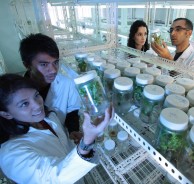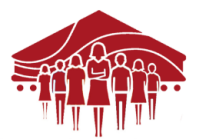Plotina - a gender equality project
in the world of research
BEFORE WE DEMANDED "Sex Equality" (equality between the sexes). Today, we express it more elegantly when we call it "Gender Equality". Even the research world today seems to feel the need for efforts that promote "balance" between female and male researchers, by correcting a lack of equality in decision-making, the use of gender or gender variables in research programs and to promote competence and prevent waste of talent.
THIS WAS THE PURPOSE of the international project "Plotina: To promote equal gender distribution and integration in research, innovation and education". The project was coordinated by the University of Bologna and the initiative aimed to develop, implement and evaluate tailored Gender Equality Plans (GEP) for each university.
THE PROJECT WHICH LASTED FOR FOUR YEARS AND WAS FUNDED IN THE FRAMEWORK OF "Science for and with society" within the EU framework program Horizon 2020.
THE PARTNERS INCLUDED WERE: University of Warwick (Great Britain), Mondragon Unibertsitatea (Spain), Instituto Superior de Ekonomisk e Gestao (Portugal), Kemijski Institut (Slovenia), Ozyegin Universitesi (Turkey), Zentrum für Soziale Innovation GmbH (Austria), Jump Forum (Belgium), Centro Studi Progetto Donna e Diversity MGMT (Italy), and Elhuyar - Zubize SL (Spain) .
Plotina held its final conference in Bologna on January 27-28.
DURING THE CONFERENCE DAYS , the results of the project were presented: a toolbox and platform that can be used by universities that must develop, implement and evaluate equality plans. There were also paper presentations on themes related to how an equality perspective can be integrated into recruitment and career processes, research, education, etc.
FROM WiTEC SWEDEN, Anna Isaksson participated. Anna has been part of the project's advisory board and helped plan the final part of the conference - a round table discussion in which Anna also participated. This conversation was about discussing "Beyond Plotina. What to do next?", i.e. what is important to think about now that the project is ending so that the results live on.
ANNA STARTED the conversation and in this speech (under the heading "What can Swedish higher education institutions learn from Plotina?") Anna presented an analysis and reflection of the project's results in relation to Swedish gender equality policy and what colleges and universities are required by the government to work with to strengthen gender equality. Mainly the focus was on what Swedish universities can learn from the project and the importance of Plotina's results being spread to countries in Europe other than those that participated in the project. Also participating in the round table was Alexandra Bitusikova (Matej Bel University in Banska Bystrica, Slovakia), who was also on the project's advisory board.
Read more about the project
on the own website
or on Facebook.
www.plotina.eu
Ingrid Thuresson's important role in PLOTINA
Ingrid Thuresson, chairman of the board of WiTEC SWEDEN is a member of the Advisory Board for the Horizon 2020 project PLOTINA “ Promoting Gender Balance And Inclusion In Research, Innovation And Training”.
The project aims to promote an even gender distribution and integration within research, innovation and education, which has clearly been shown to mean big profits for the companies and for society in general.
Coordinator for the EU project PLOTINA is the Alma Mater Studitorium/University of Bologna. The project started on 1 February 2016 and is expected to last until 31 January 2020.








